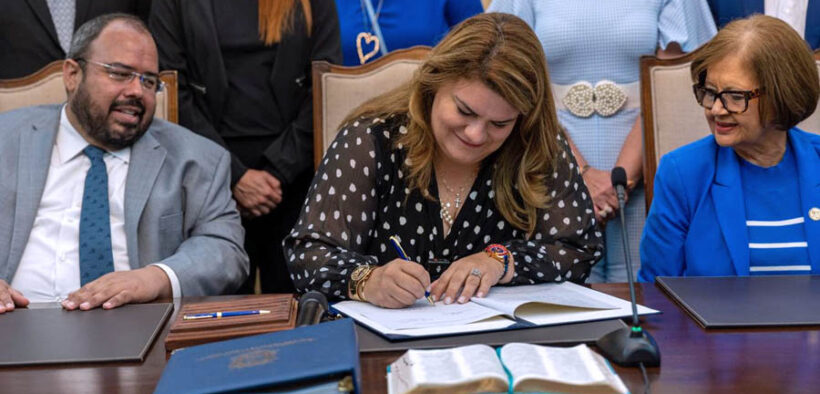Puerto Rico scores ‘moderate progress’ in Birling government index

Puerto Rico’s first seven months under Gov. Jenniffer González’s administration show signs of moderate improvement, according to the inaugural Government Progress Index developed by Birling Capital.
From Jan. 2 to Aug. 3, 2025, Puerto Rico scored 21.5 out of 50 on the index, placing it in the “Moderate Progress” category — a 7.5% increase from the 100-day benchmark score of 20.
The index synthesizes data from more than 20 independent sources using a proprietary scoring algorithm to evaluate progress in public services, economic development, quality of life and policy implementation. A score of 21.5 reflects a mixed performance, with measurable gains in some areas and continued challenges in others.
Among the strongest sectors was construction, as cement sales rose 21.8%, from 1.1 million to 1,350,000 sacks. The report attributes this growth to federal reconstruction funding and strong private investment in housing.
Auto sales increased 10.2% to 10,523 units, and per capita income rose 5% to $21,551, supported by wage growth in health care, services and construction.
“Puerto Rico’s capital markets are signaling forward-looking confidence,” the report said, pointing to a 9.8% increase in the Birling Capital Puerto Rico Stock Index. The index tracks key publicly traded companies, including Popular Inc., First BanCorp and Evertec, all of which posted strong second-quarter results, with Popular leading in revenue and earnings growth.
Despite economic gains, several areas remain underperforming. The energy and water sectors were categorized as “Non-Compliance.” The System Average Interruption Duration Index (SAIDI) had not been updated since January, when it stood at 1,414 minutes — 336% above the U.S. average. Household ownership remained stagnant at 64%, and the gross domestic product growth forecast was revised slightly downward, from 2.2% to 2.1%.
Labor force participation edged up from 44.8% to 45.1%, while unemployment rose slightly to 5.5%. The Economic Activity Index remained negative, improving only marginally from –1.1% to –1%.
Birling’s report described the administration’s leadership approach as “an experiment in centralized problem-solving and accelerated execution,” referring to it as a “Commonwealth of Czars.” Several new positions have been created to address persistent issues, including Energy Czar Josué Colón Ortiz, Water Crisis Czar Carlos Pesquera and Efficiency Czar Verónica Ferraiuoli.
The analysis identified five strategic priorities: energy grid reform, deployment of $68 billion in unspent federal funds, boosting labor participation, achieving health care parity with U.S. states and positioning Puerto Rico for nearshoring under federal industrial policy.
Despite these efforts, the island’s fiscal outlook remains fragile. Public debt stands at $34 billion, and Puerto Rico’s credit rating remains at “D” pending resolution of the Puerto Rico Electric Power Authority’s restructuring and broader structural reforms.
Birling Capital estimates that a comprehensive package of regulatory, tax, labor and infrastructure reforms could generate up to $37.4 billion in GDP growth.
“The path is measurable,” the report stated, citing modeling by the Puerto Rico Economic Freedom Institute.
Whether the administration’s centralized model will yield lasting transformation remains uncertain.
“Some view it as bold leadership; others question the effectiveness of agency heads,” the report concluded. “Time, as always, will be the final and impartial judge.”












